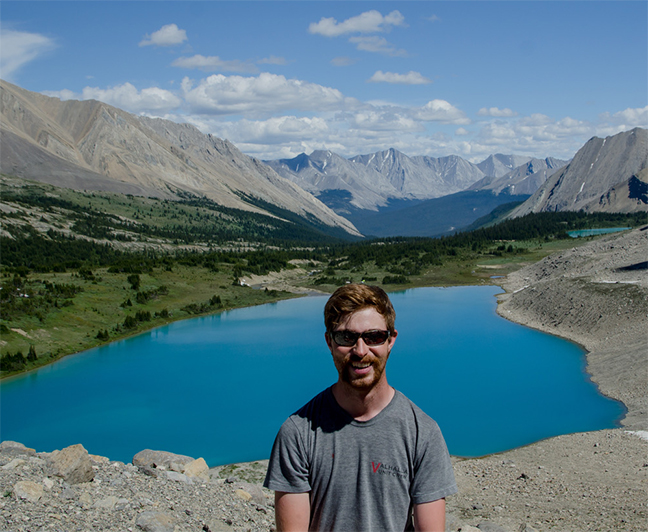











Research Team >> M.Sc. Students >> Colby Whelan
Colby Whelan (2017-2020)

|
I grew up in Campbell River on Vancouver Island. From a young age I took an interest in aquatic ecosystems, both as a fisher and a developing ecologist. I opted to study ecosystem biology at Uvic and after a brief period considering medicine I decided to seriously pursue a career in aquatic science. In 2015 I got a job working as an aquatic resource technician in Banff National Park. I was present for the discovery and response to Whirling Disease in 2016 and voiced my interest in going to graduate school. Parks Canada generously agreed to provide funding for a project that could increase knowledge of Whirling disease in Canada.
Whirling disease is caused by a parasite with a complex lifecycle that alternates between salmonid fish and the oligochaete worm Tubifex tubifex. My research involves mapping the extent and habitat preferences of Tubifex tubifex. The disease cannot persist without the presence of both fish and T. Tubifex so determining where their ranges overlap will effectively determine where the disease could arise. With this information I hope to provide managers with vital information to evaluate the risk of Banff’s native trout populations. I found a home in the Jackson Lab at the University of Calgary. Whirling disease has gone unstudied in Canada until now, but the knowledge of aquatic invasive species within the lab provides the best background I could hope for. I also personally believe that there is value in being close to what I study, and so the University of Calgary’s location within the Bow Valley is an ideal spot. I am enjoying my time in grad school because it allows me to really hone in on a specific subject. I also like being exposed to all the new research that other students and faculty are working on. I hope to take what I learn from my research and apply it to our national park system so that the managers of lakes and streams can make informed decisions. |
